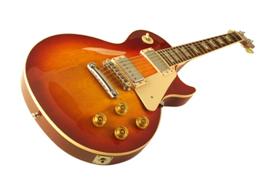 My kindred spirit – and at times blogger partner – Alan Cross (“A Journal of Musical Things”) ran across something fascinating the other day about musicians. I think there are radio applications to it, too, so let me explain.
My kindred spirit – and at times blogger partner – Alan Cross (“A Journal of Musical Things”) ran across something fascinating the other day about musicians. I think there are radio applications to it, too, so let me explain.
Below are two video clips, one from today featuring Trent Reznor in Dave Grohl’s Sound City documentary. The second goes back more than 40 years to a Pink Floyd video made around their Live at Pompeii concert in 1972.
The fascinating thing about these two videos is that Reznor and Floyd’s David Gilmour are literally saying the exact same thing about the tools, the technology, and the quality of their music.
Start the Grohl video below at 5:00 and listen to what Reznor says about technology and the creative process.
>EMAIL RECIPIENTS: CLICK HERE TO WATCH DAVE GROHL/TRENT REZNOR VIDEO<
Now start the Floyd video at 14:00 and check out David Gilmour:
>EMAIL RECIPIENTS: CLICK HERE TO WATCH PINK FLOYD VIDEO<
The fact is that in radio, we also have amazing technology in which to produce wonderful content on many different platforms and palates. We can create wonderful experiences and extensions of our brands on our websites, in mobile apps, on Facebook, and of course, on our air. Never before have we had so much technology and so many outlets for innovation and expression.
And yet, as the tools get better, is radio content following suit? Does radio sound better today than it sounded back in the ’90s? Or for that matter, in 1972?
(You might ask the same question for music, and that may be the topic of another post.)
A little later in the Floyd video, Roger Waters makes this point about technology and the creative process:
“It’s like saying, give a man a Les Paul guitar and he becomes Eric Clapton. It’s not true.”
It’s what we do with the tools we have that makes the difference. The fact that anyone can have a studio in their home at a fraction of what it once cost means nothing if the output isn’t compelling and satisfying to consumers.
Consider that:
We have the capability to create radio shows in advance and from a great distance.
We have the ability to make our radio stations visual via video production tools that anyone can master.
We have the chance to go well beyond our terrestrial signal limits to broadcast our content.
We have the freedom to be able to create multiple channels that can provide a personalized and customized experience.
We have the opportunity for consumers to share our content easily with their roommates or with people halfway around the world.
We have the ability to acknowledge listeners in social spaces, personally connecting with them and potentially enriching the audio entertainment experience.
 But none of it matters if we’re mailing in content, cranking out commercials by the pound with no attention paid to creativity or results, throwing formats on the air with no sense of excellence, or thinking short term tactics for an increasingly fickle audience that demands more and has a seemingly infinite array of options.
But none of it matters if we’re mailing in content, cranking out commercials by the pound with no attention paid to creativity or results, throwing formats on the air with no sense of excellence, or thinking short term tactics for an increasingly fickle audience that demands more and has a seemingly infinite array of options.
Mastering the tools – whether they are gadgets or social media assets – is the art. But just knowing how to post on Facebook or build an app means nothing.
What can you do with the tools in front of you?
And how can you use them to make magic and not just crank stuff out?
What are you doing with that Les Paul?
- Media And Technology In 2025: Believe It Or Not! - April 18, 2025
- In Radio, You Just Never Know - April 17, 2025
- The Secret To Making A Great Podcast (And Great Radio) - April 16, 2025




Well said .. Instead of worrying about industry buzzwords social media etc … It all should come back to how to get your performance to the highest level . Because at the end of the day. They are all just tools not art.
Hope a lot of people took that away from the article cuz we gotta turn this industry around .
Let’s hope so, Frank. Thanks for the comment & for reading our blog.
This is a recurring theme with no disruption. Fred mentioned the other day that PDs seem attached to the conservative, no risk approach.
Here’s a question – Why is there not one outlier, one owner, one cluster, one station, one something doing something imaginative, different…something?
Does someone have an aircheck of a good station from the late 90s? My guess is that radio sounds very much like it did then. Amazing – since the advent of the iPod, YouTube, smartphones, Pandora, Spotify, XM/Sirius and radio is till doing pretty much the same thing.
I find it amazing that radio has held on as well as it has.
Afraid it’s true. We aren’t asking for something new, different, and innovative from programmers. And sure enough, we’re not getting it. Thanks for emphasizing those important points.